RARE! House of Representatives 1831 “Law of Illinois” Book Owned by Abraham Lincoln (16th U.S. President) with Display Case (C.O.A. Included)





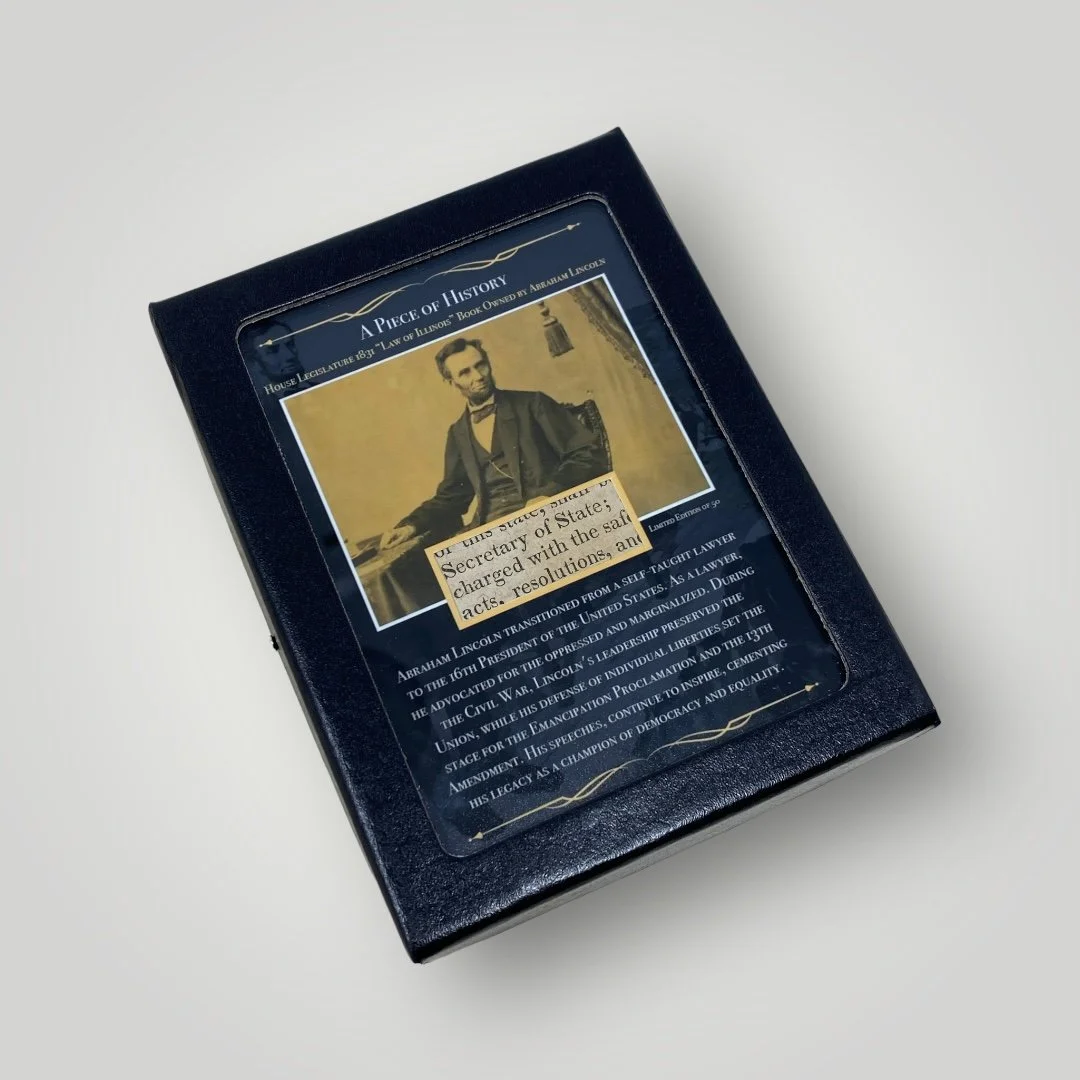
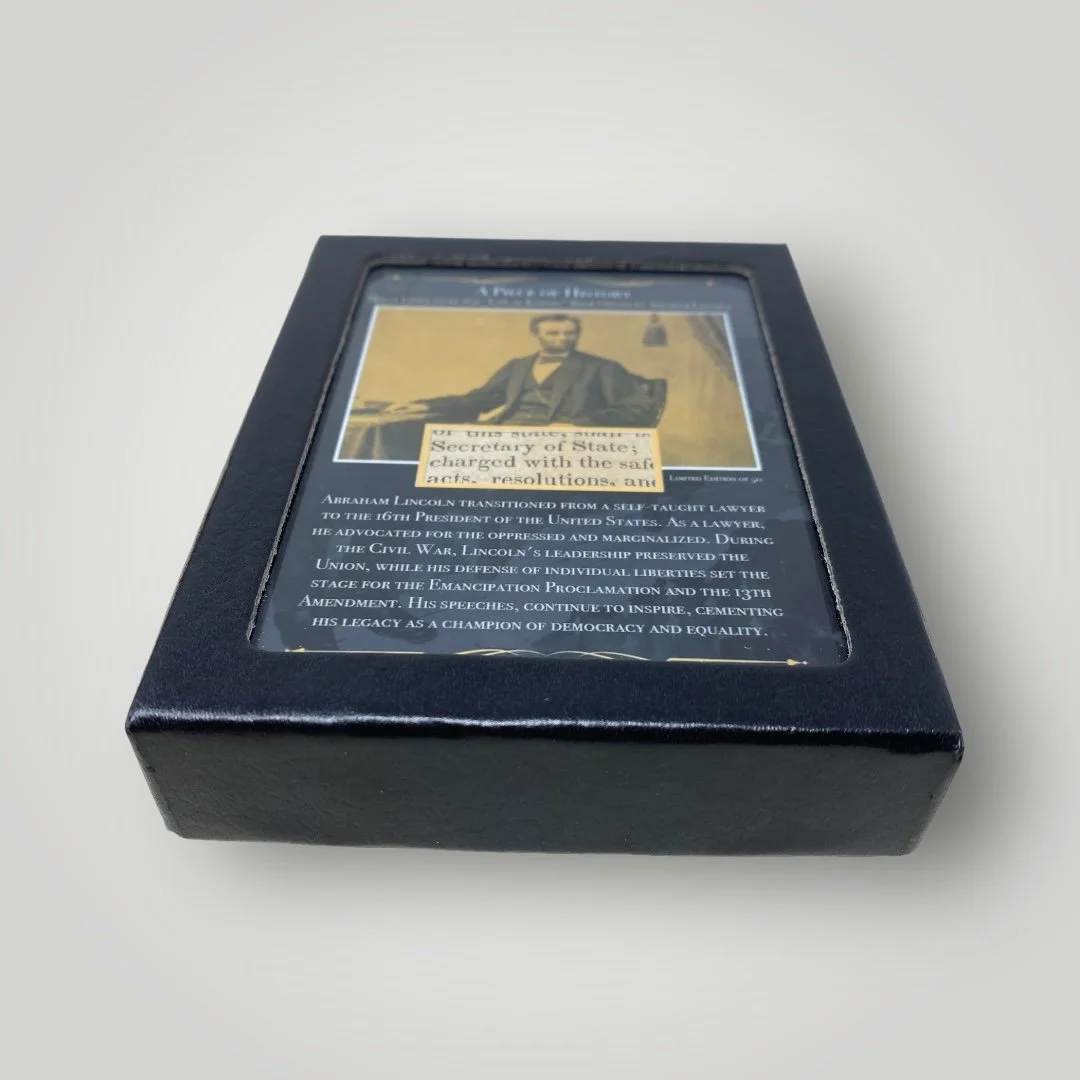

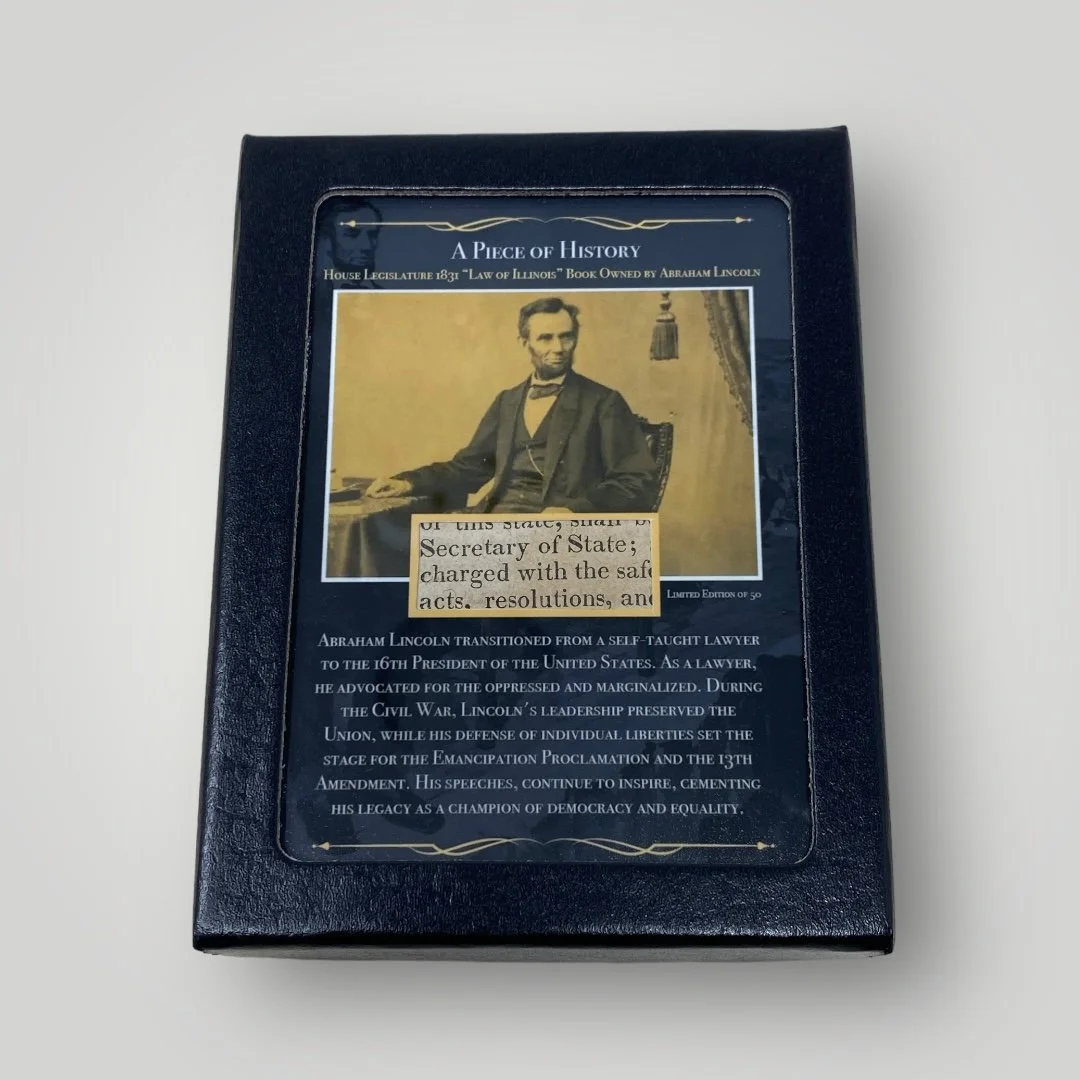

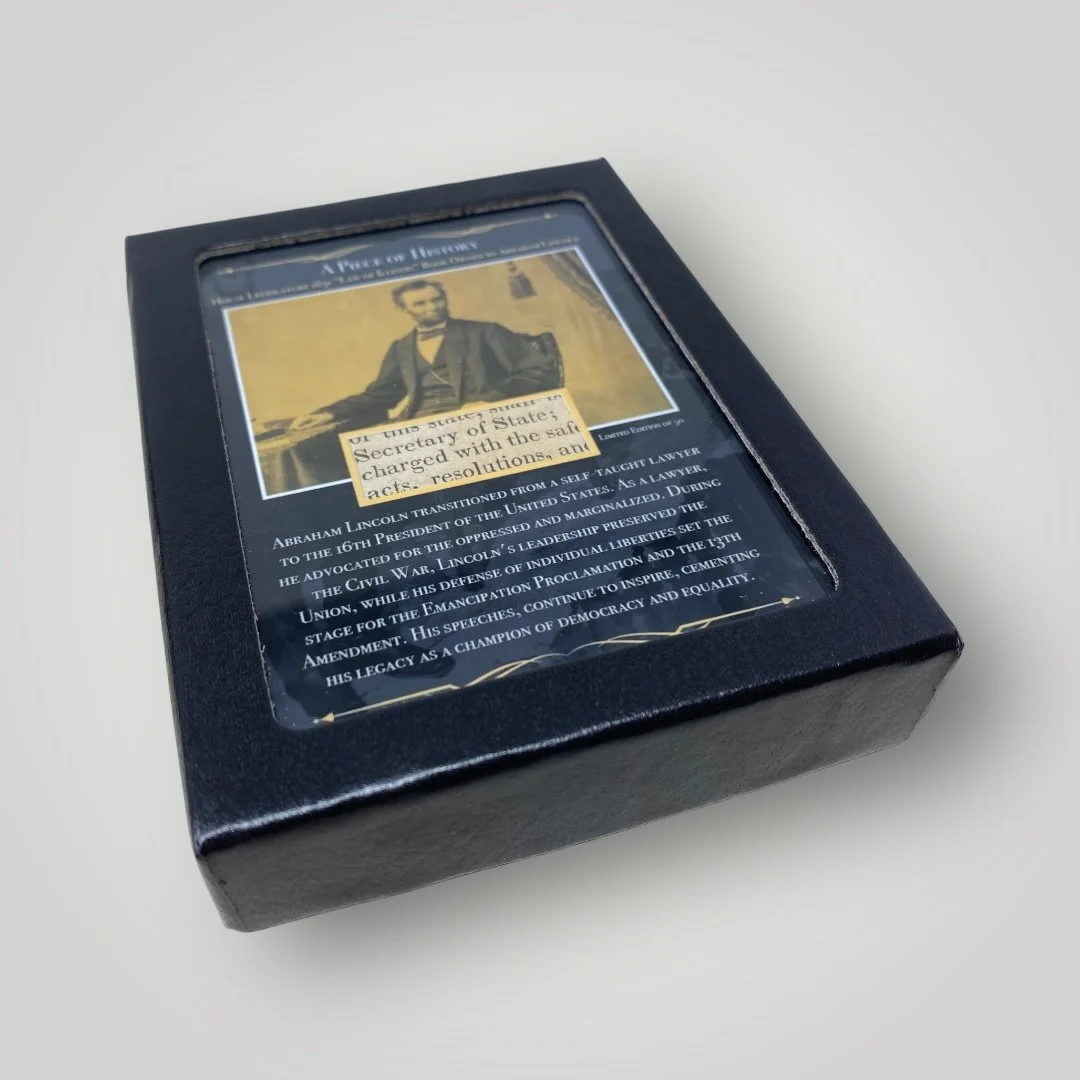
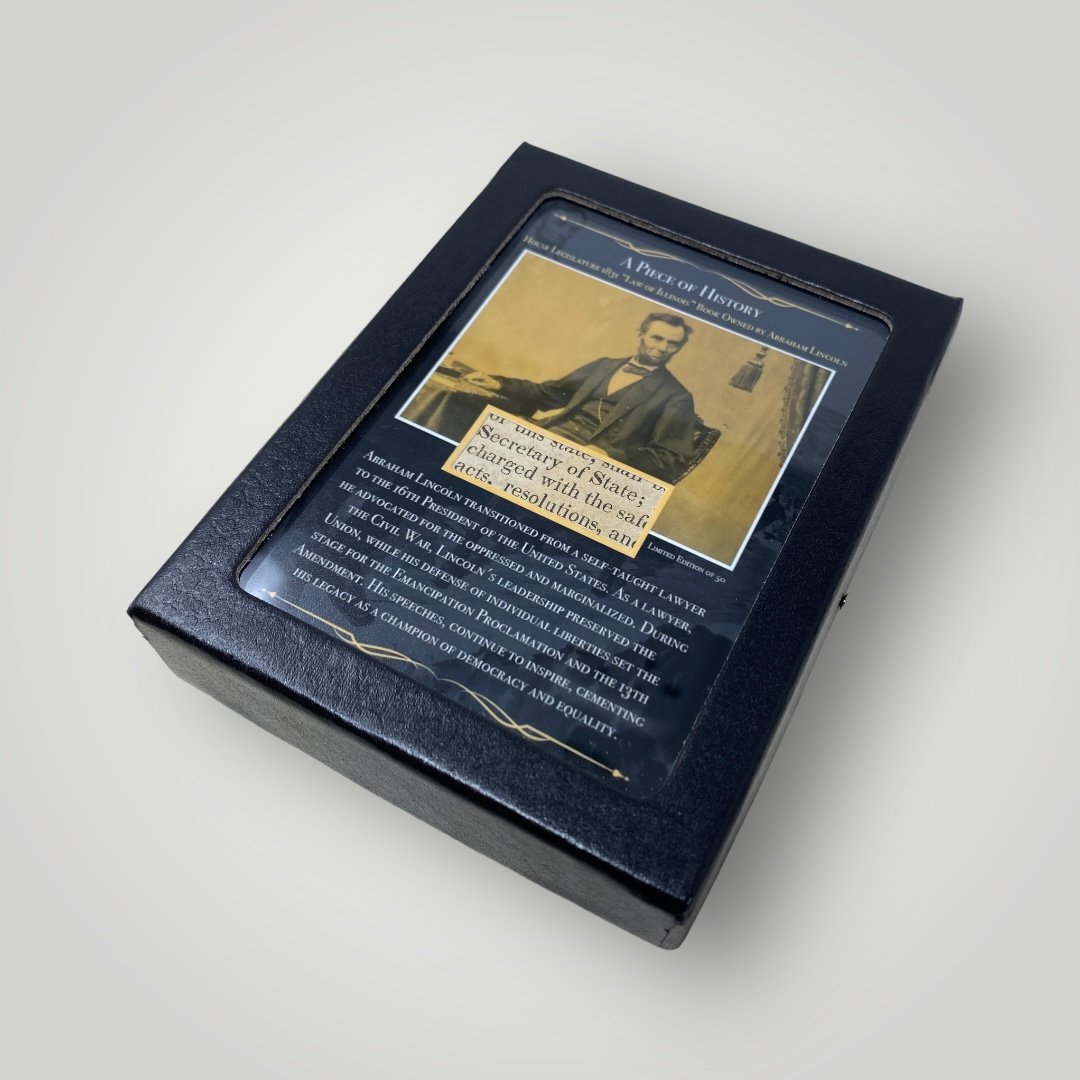
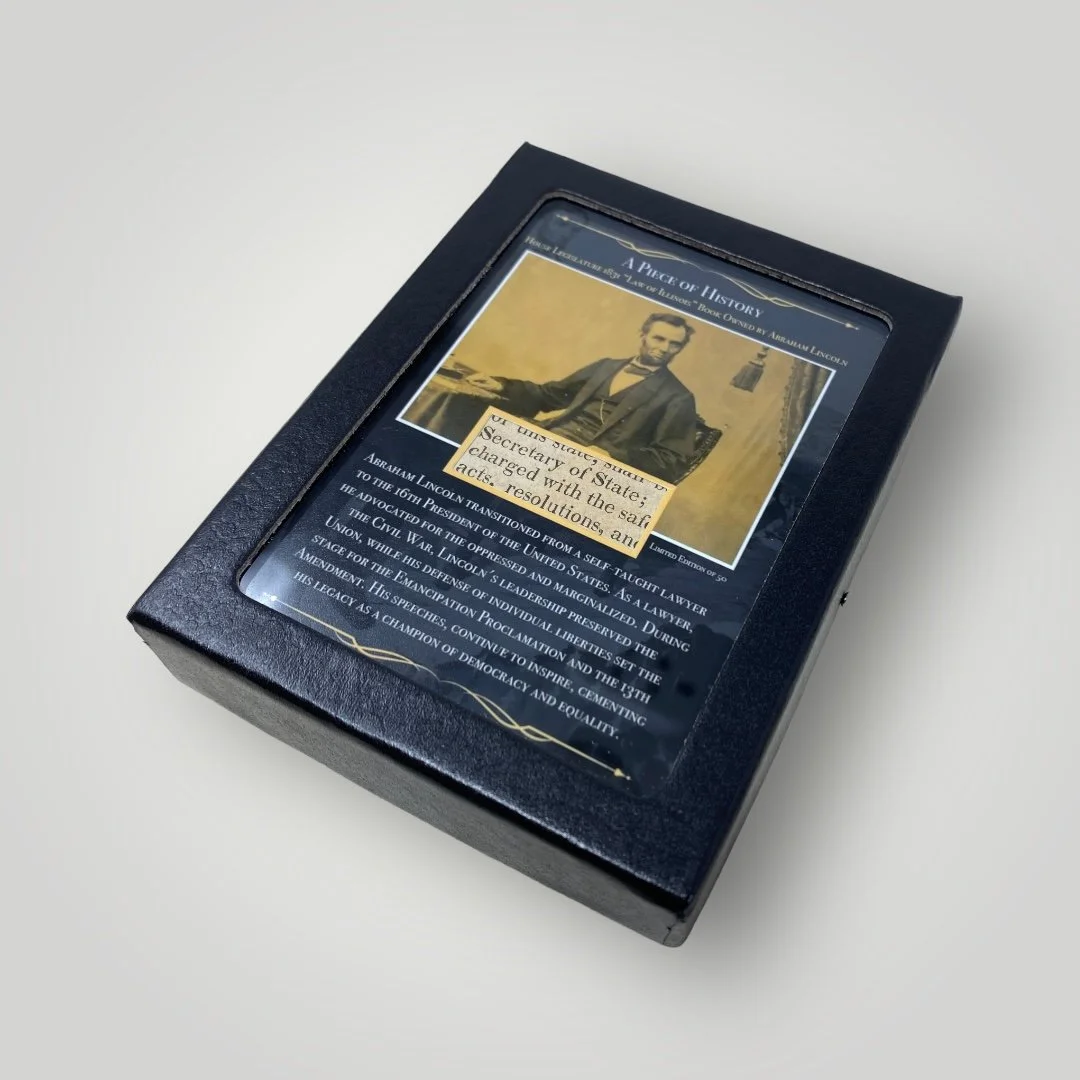




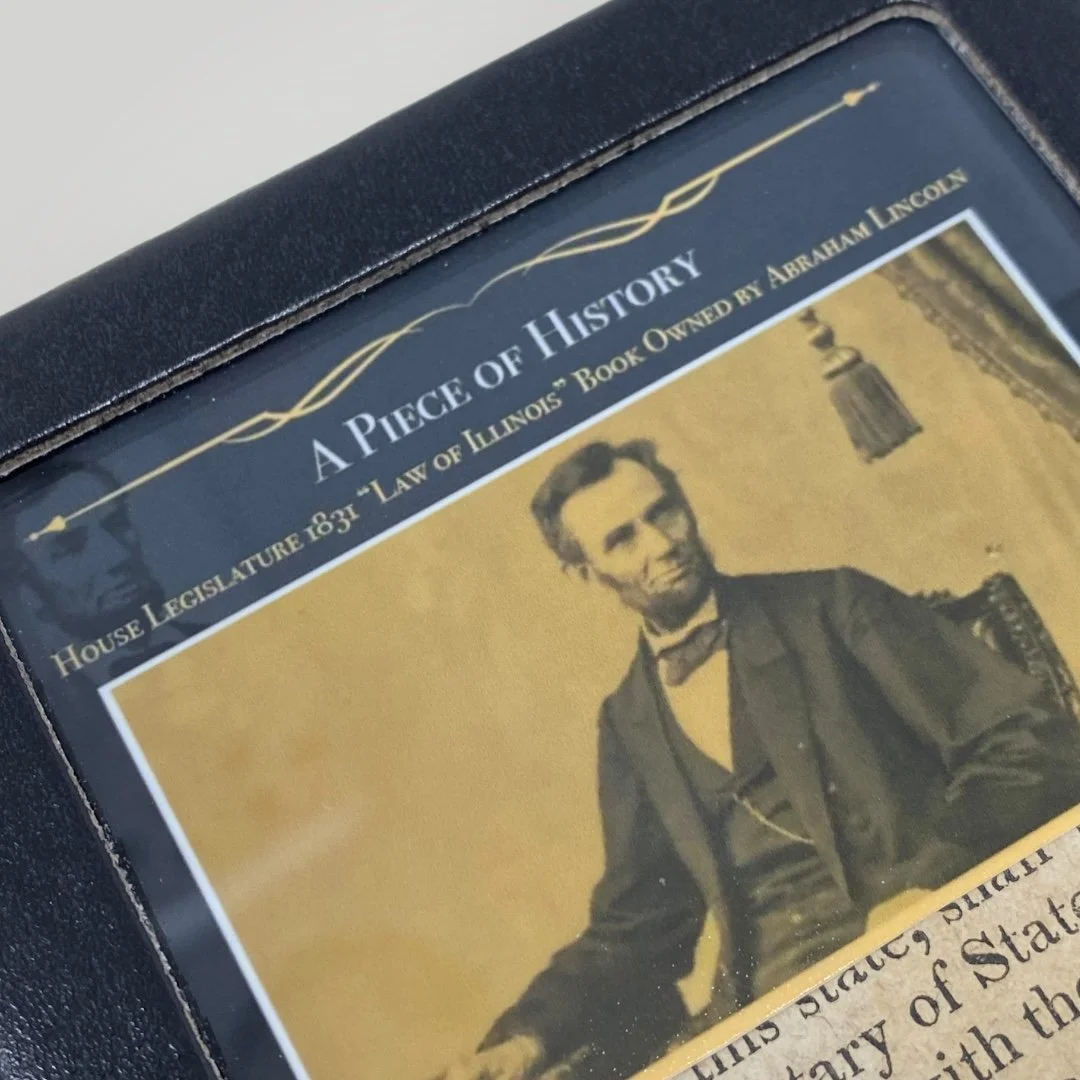

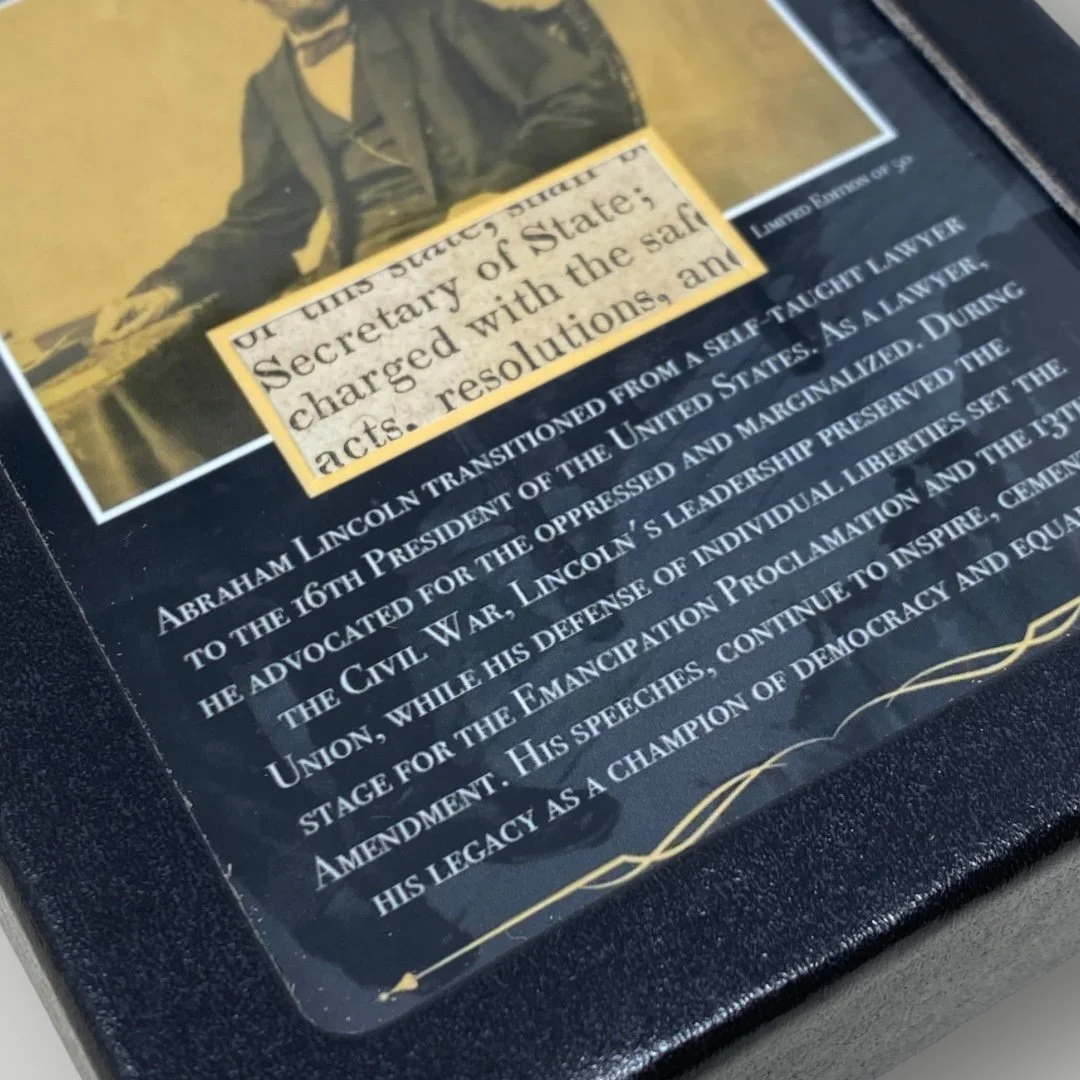

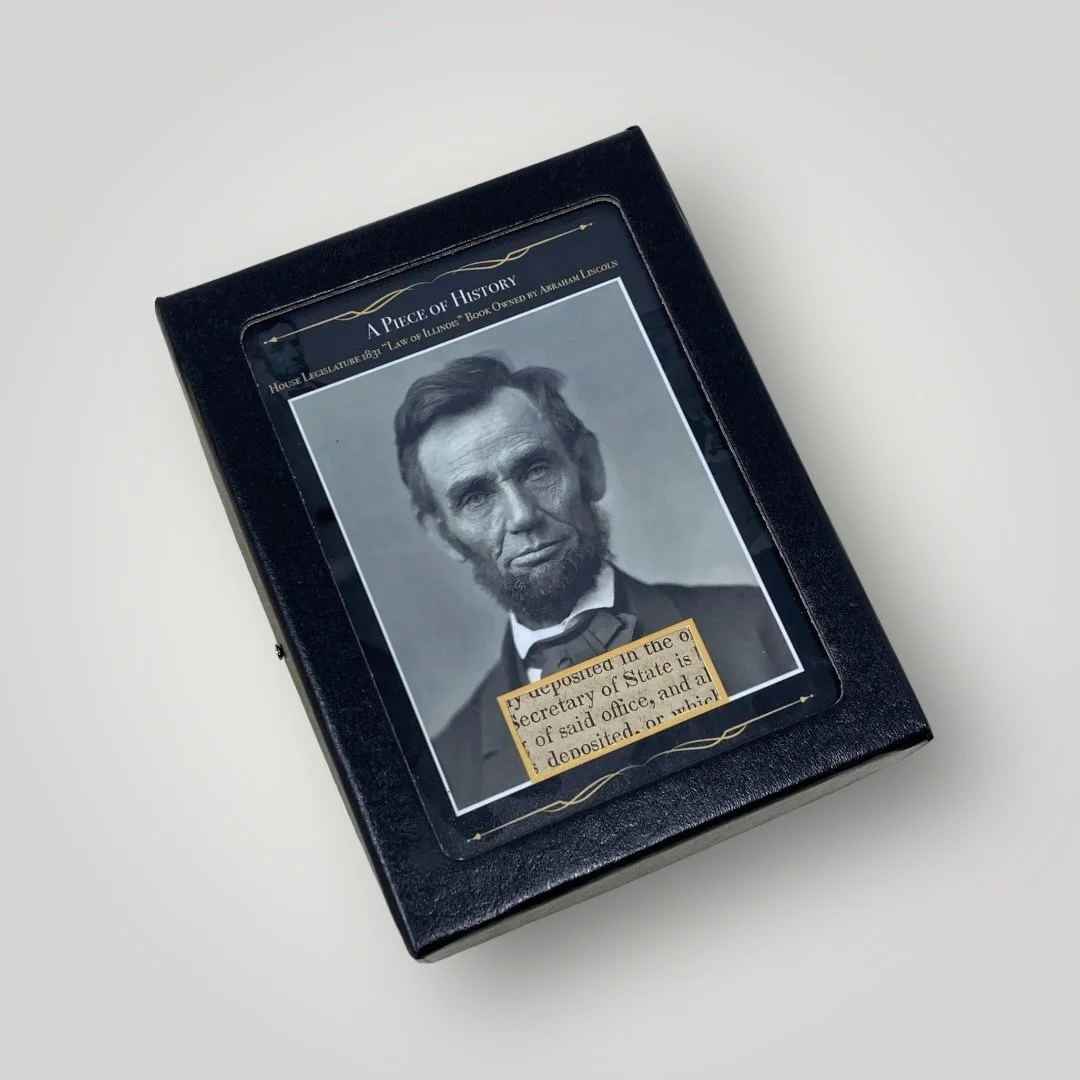

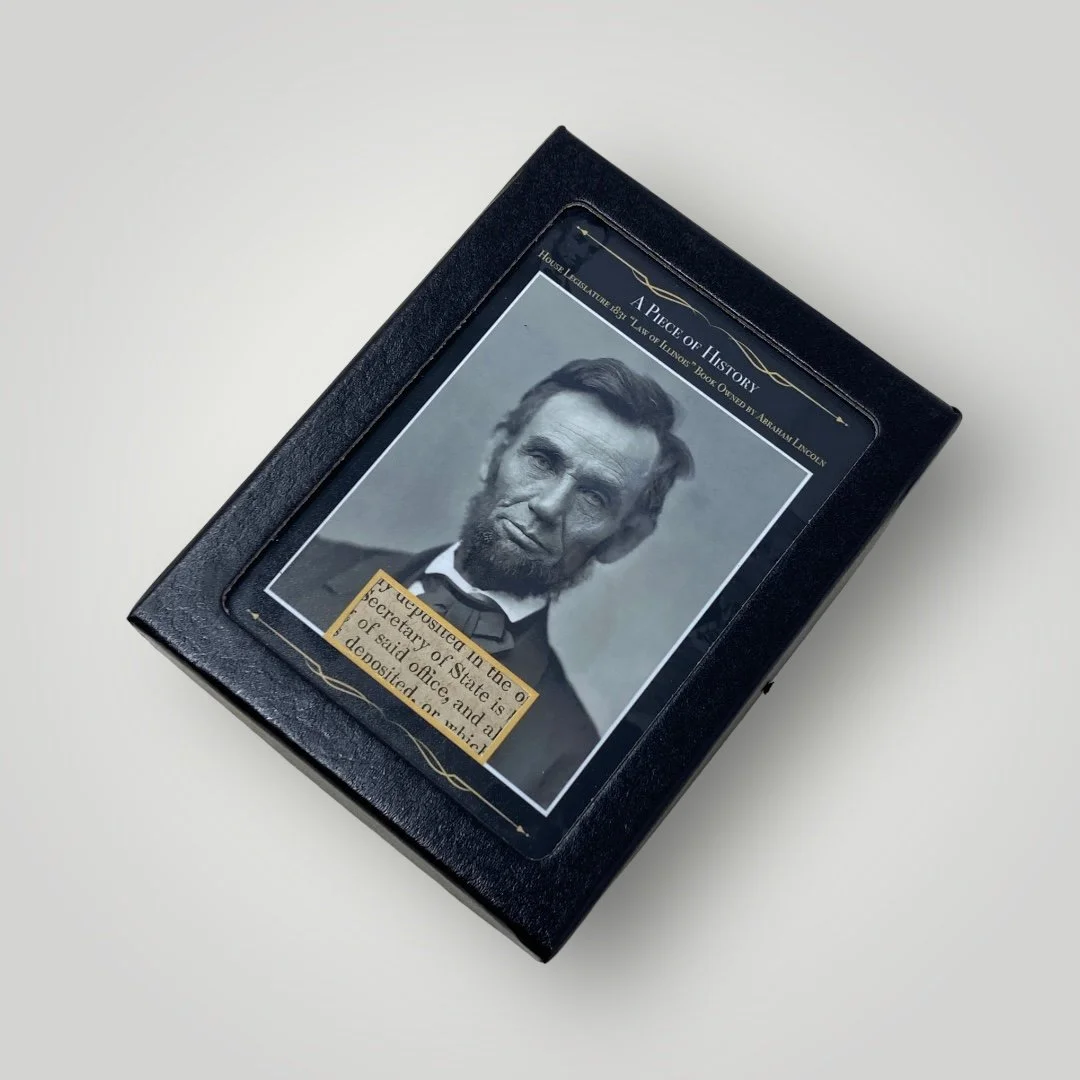







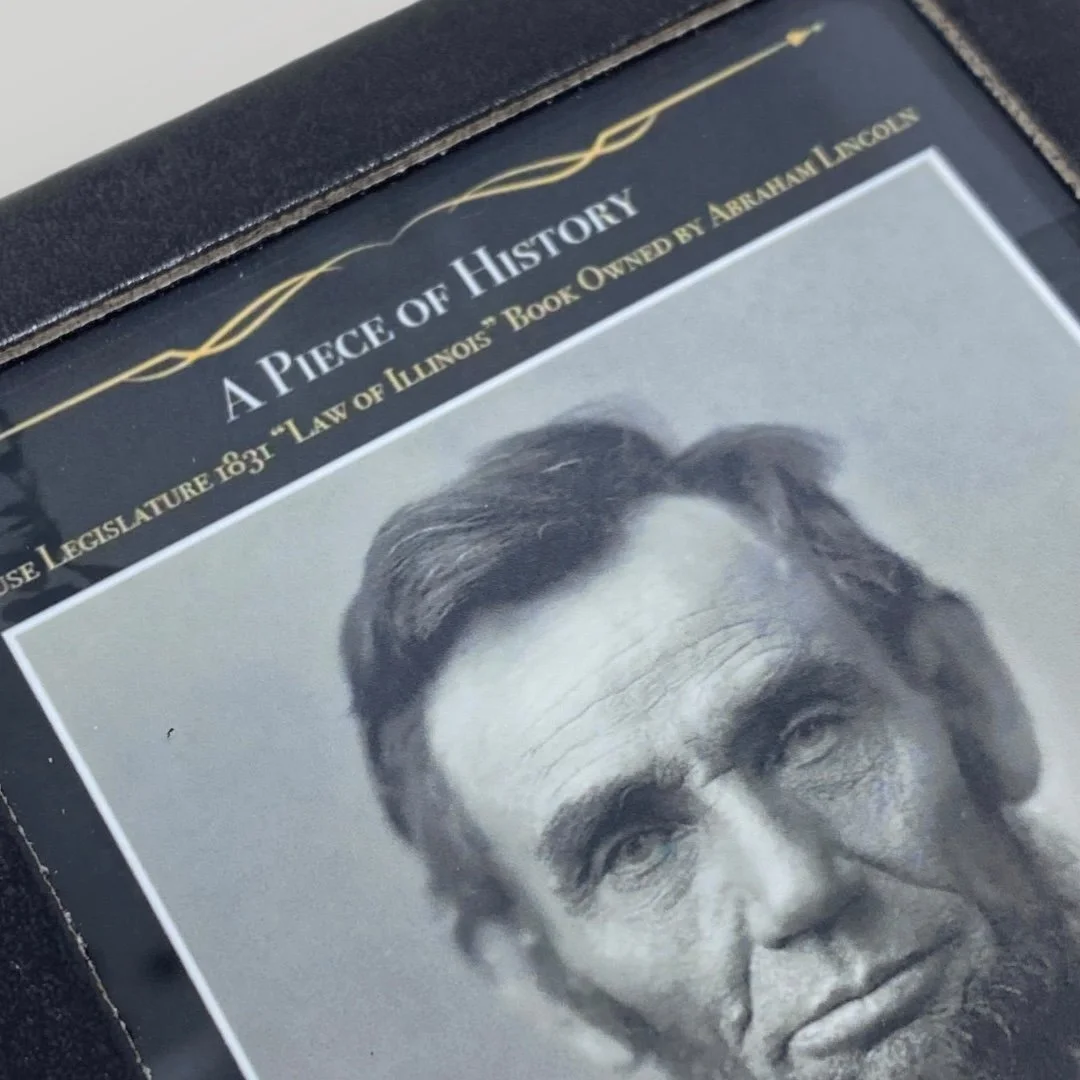
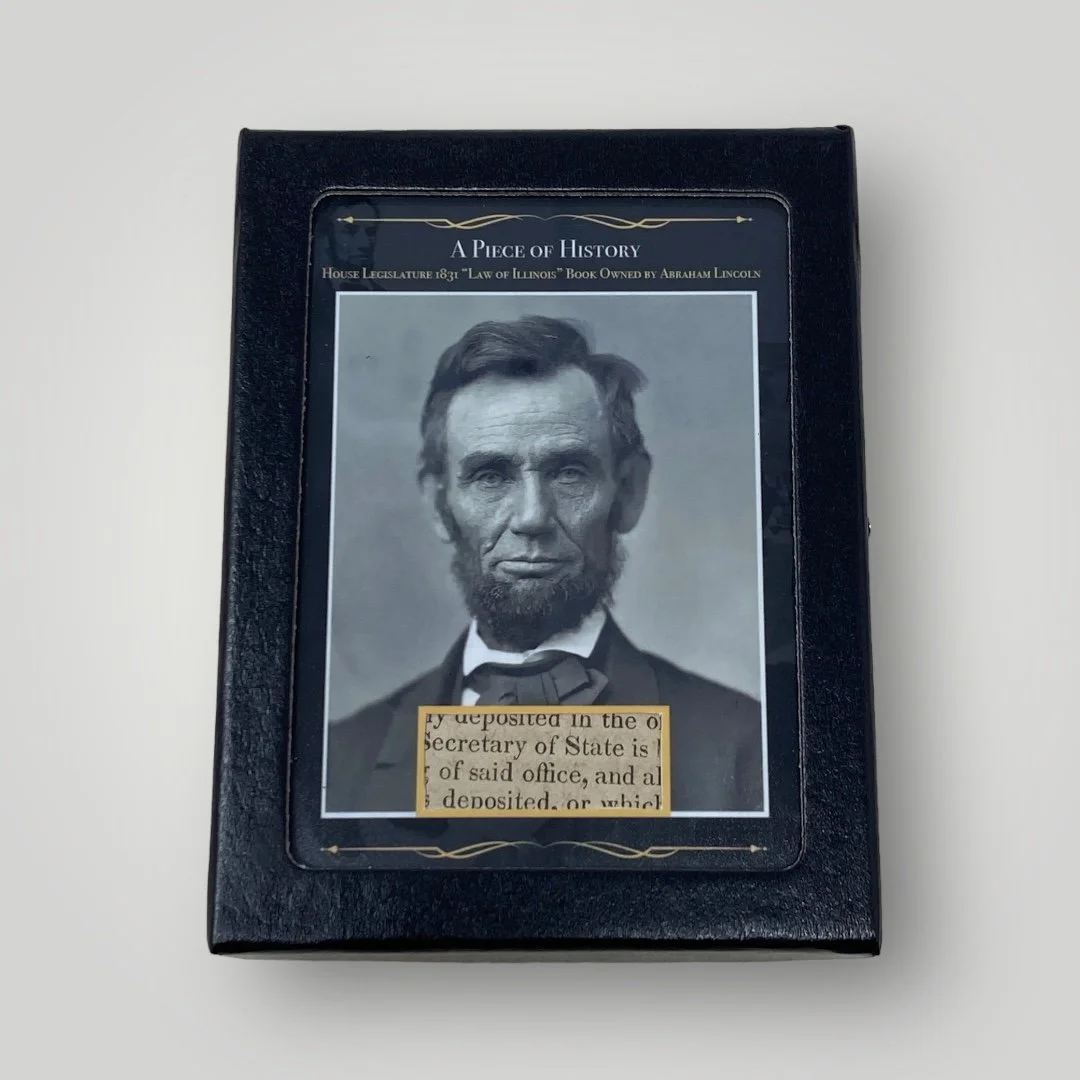



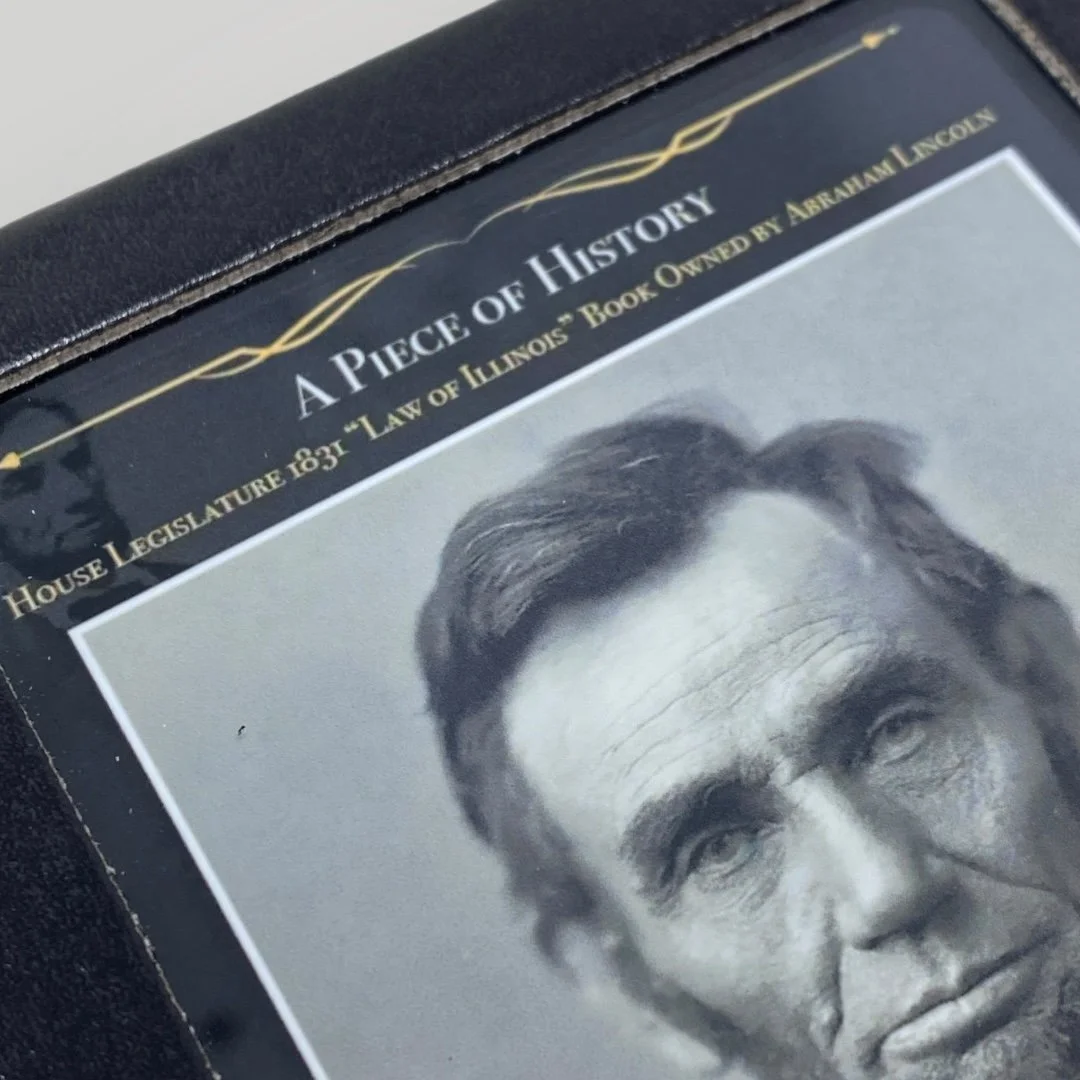
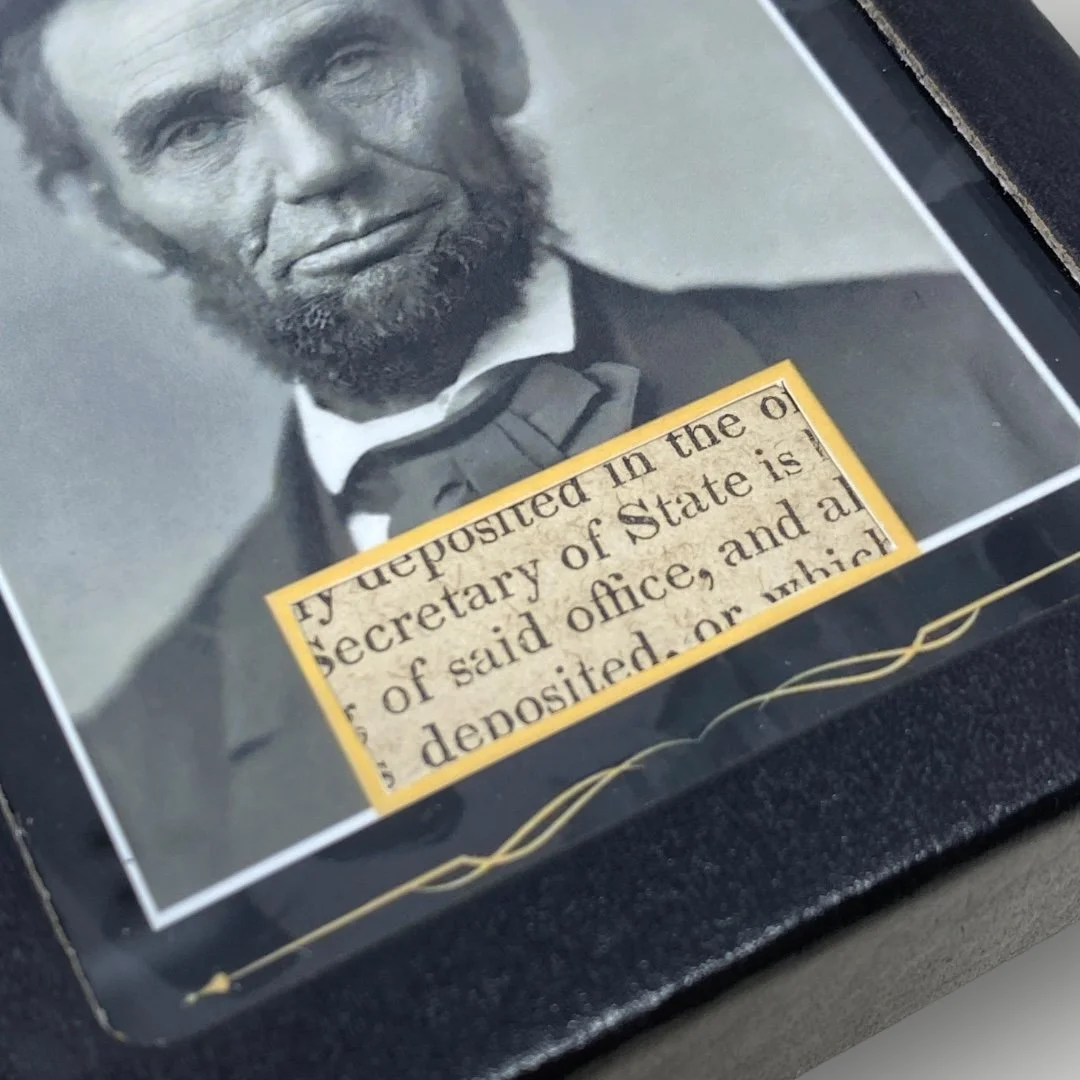
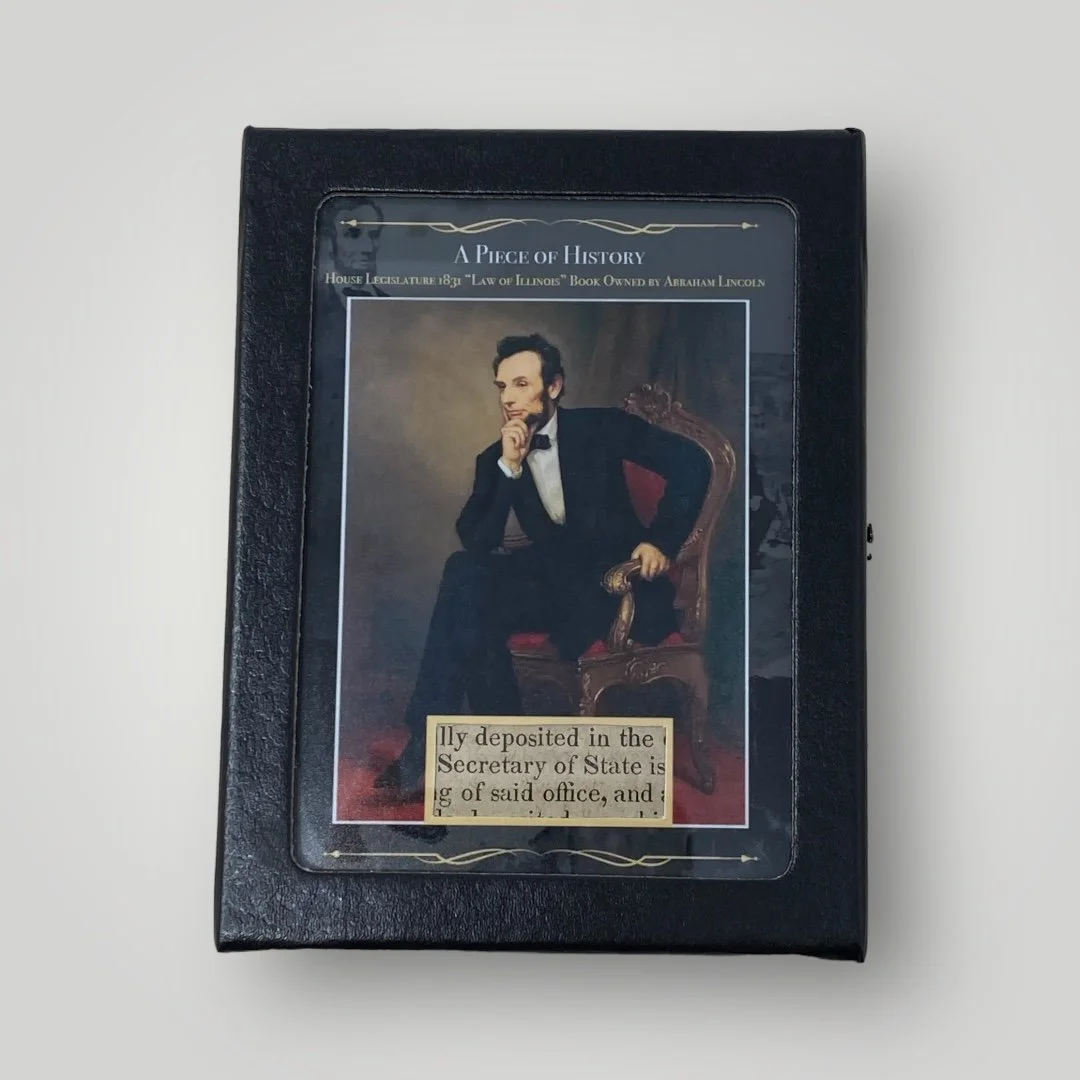








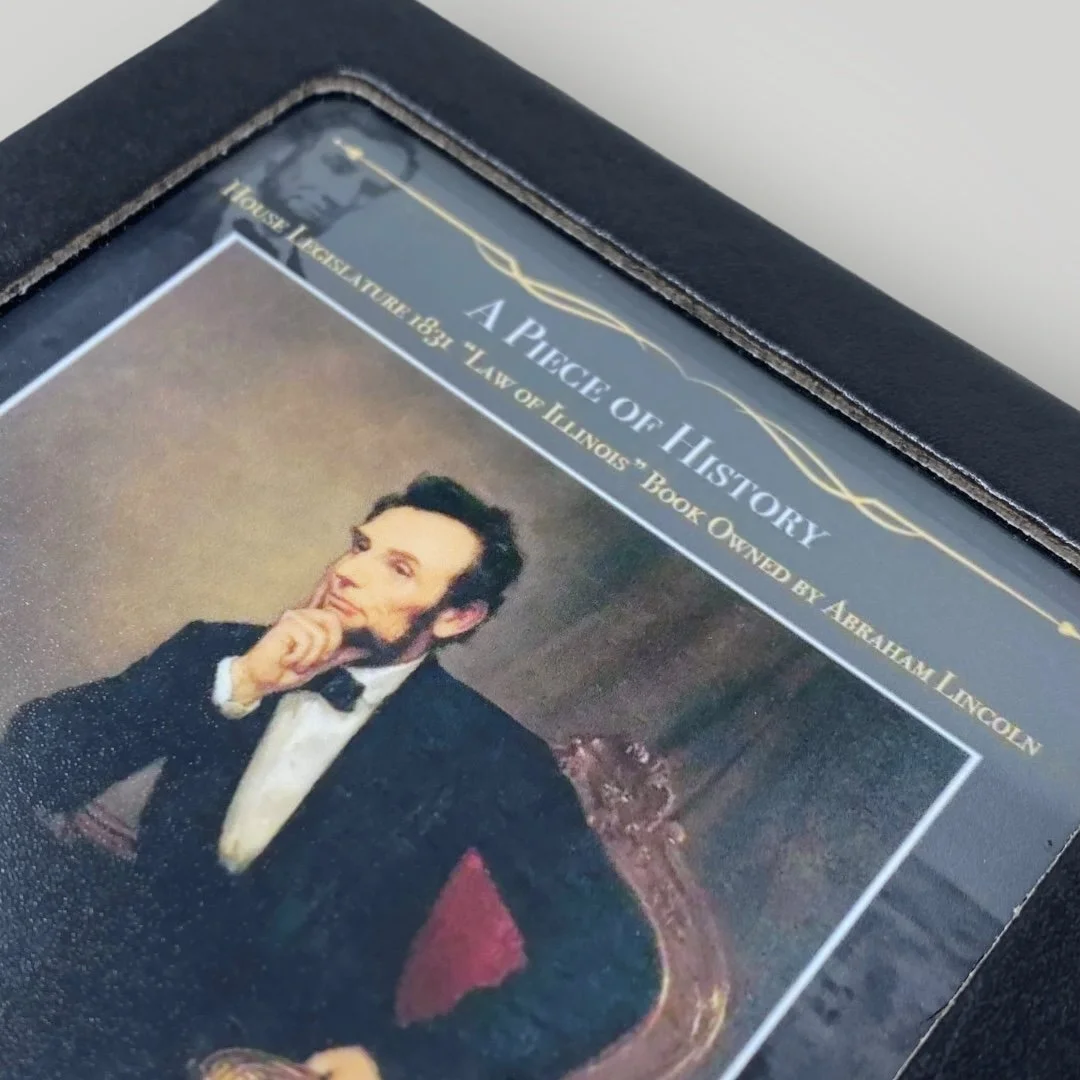

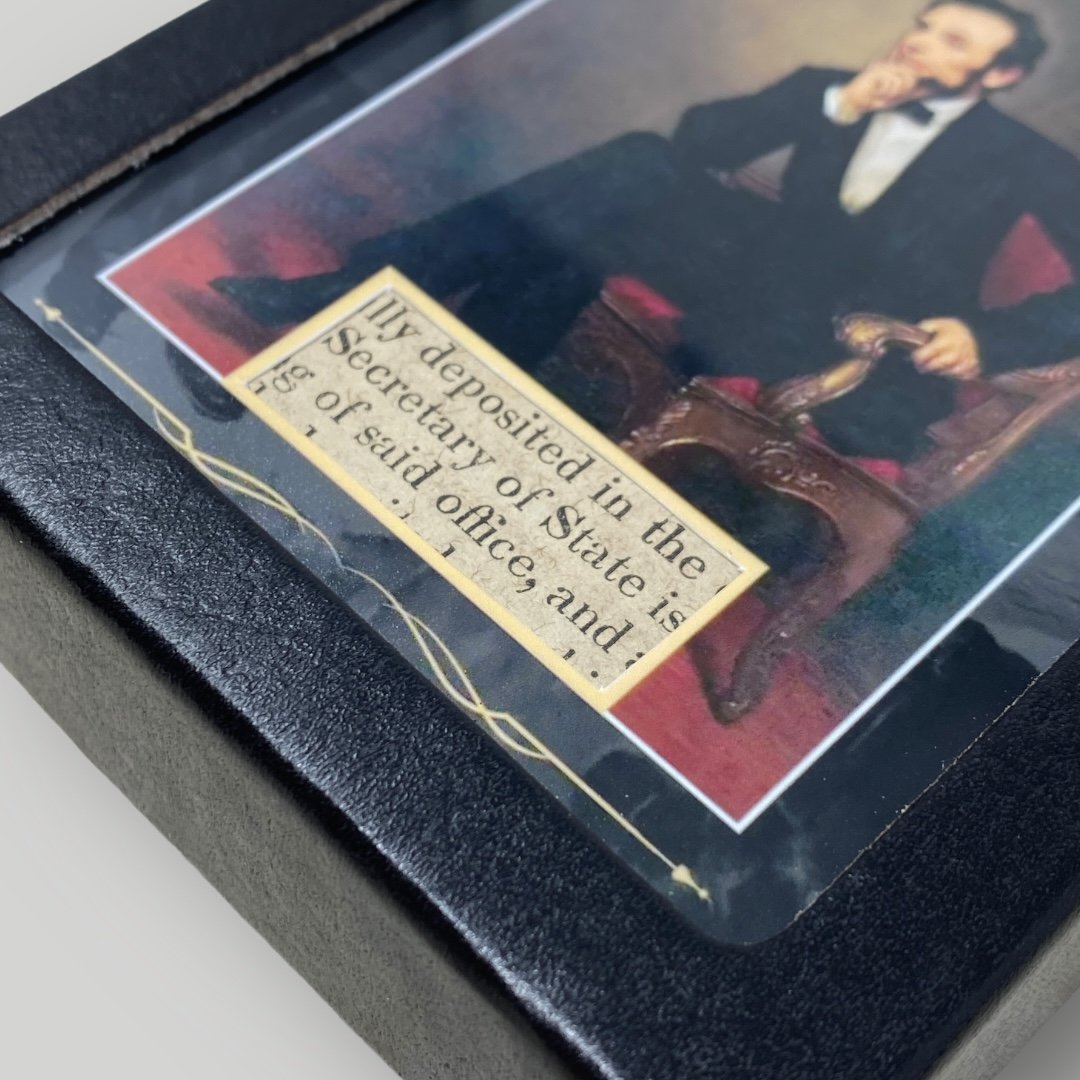

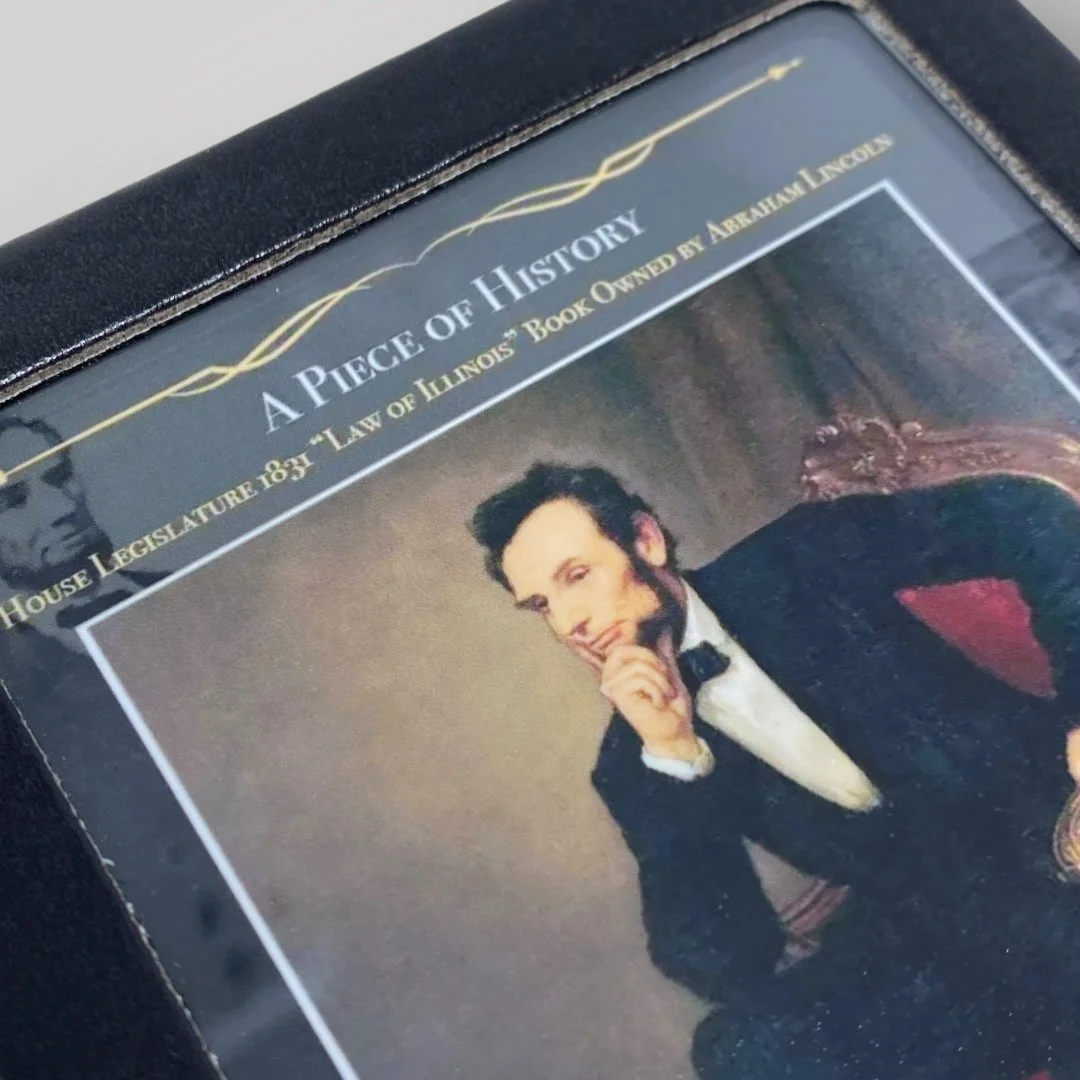
RARE! House of Representatives 1831 “Law of Illinois” Book Owned by Abraham Lincoln (16th U.S. President) with Display Case (C.O.A. Included)
Comes with a hand-signed C.O.A. and a full historical research write-up.
*Limited Edition of 50*
Own your piece of history today!
Due to an incredibly high demand for display case options, we are proud to offer one of our LIMITED EDITION series of HISTORIC DISPLAY CASE EXCLUSIVES. This incredible “Piece of History“ is professionally encased in a glass display case with plush padding and a tightly sealed display case. Each display features a historical photograph and a short description that corresponds to the artifact displayed. This display case measures a perfect 4.25 inches tall x 3.25 inches wide.
This series is a limited edition of 50 pieces, meaning that each “Piece of History” display is unique. The Abraham Lincoln artifact fragment you receive may vary slightly from the display shown.
This incredibly rare and very historic piece of WWII history is an original House of Representatives 1831 “Law of Illinois” book owned by Abraham Lincoln when he assumed the first statewide office of his political career in Vandalia, Illinois. As a new Legislator, this marked the very beginning of Abraham Lincoln's political career as a member of the Illinois General Assembly in 1834.
Lincoln's foray into politics began in 1832 when he campaigned unsuccessfully for a seat in the Illinois General Assembly. Undeterred by his defeat, Lincoln remained undaunted and resolved to continue his political pursuits. In 1834, he won election to the state legislature, representing Sangamon County. This marked the onset of his legislative career, where he would serve a total of four terms as a member of the Illinois General Assembly.
As a newly minted-legislator, Lincoln quickly distinguished himself through his eloquence, integrity, and commitment to public service. Despite his relative inexperience, he demonstrated a keen understanding of the issues facing his constituents and advocated for policies aimed at improving their lives. One of his notable achievements during his tenure in the Illinois General Assembly was his advocacy for internal improvements, including the construction of roads, canals, and railroads. Lincoln recognized the importance of infrastructure development in fostering economic growth and enhancing connectivity within the state.
Moreover, Lincoln championed education reform, believing that access to quality education was essential for the advancement of society. He supported measures to establish public schools and promote literacy among the populace, laying the groundwork for future educational initiatives in Illinois.
Lincoln also emerged as a vocal opponent of slavery, denouncing it as a moral abomination that violated the principles of liberty and equality enshrined in the Declaration of Independence. While the issue of slavery would continue to roil the nation in the years to come, Lincoln's principled stance against this institution foreshadowed his role as the Great Emancipator during his presidency.
In addition to his legislative accomplishments, Lincoln's time in the Illinois General Assembly provided him with invaluable experience in coalition-building and consensus-building. He forged relationships with fellow legislators across party lines, honing his skills as a statesman and consensus-builder—a trait that would serve him well in his later political career.
Abraham Lincoln's tenure in the Illinois General Assembly laid the groundwork for his subsequent political ascent and left an indelible mark on the state and the nation. His unwavering commitment to principle, his dedication to public service, and his ability to bridge partisan divides serve as enduring examples for contemporary politicians.
Moreover, Lincoln's early experiences in politics underscore the importance of perseverance and resilience in the face of adversity. Despite encountering setbacks and failures, he remained steadfast in his pursuit of a better future for his constituents and the nation at large.
Furthermore, Lincoln's moral clarity and steadfast opposition to injustice highlight the transformative power of moral leadership in shaping the course of history. His unwavering commitment to the principles of liberty and equality served as a guiding light during some of the darkest moments in American history, inspiring future generations to uphold these ideals.
Abraham Lincoln's assumption of the first statewide office of his political career in Vandalia, Illinois, marked the beginning of a remarkable journey that would culminate in his presidency and the preservation of the Union. His tenure in the Illinois General Assembly showcased his leadership abilities, moral convictions, and dedication to public service. Lincoln's legacy continues to resonate today as a beacon of hope and inspiration, reminding us of the enduring principles that define the American experiment in democracy.